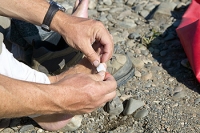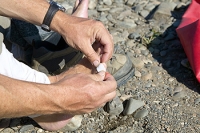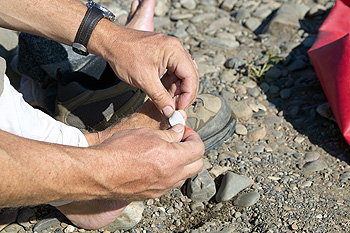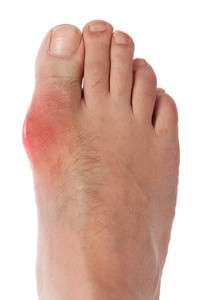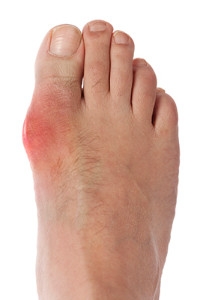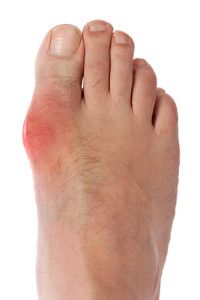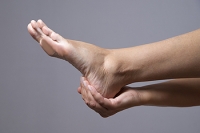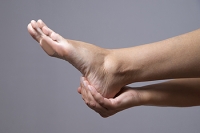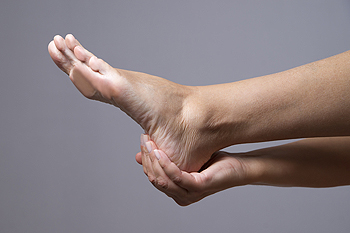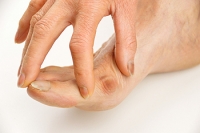
Blog (807)
Wounds That Don't Heal Need to Be Checked
How to Prevent Blisters on the Feet
If you see a small area filled with clear fluid on your foot, you may have what is referred to as blister. It’s common for joggers to develop blisters on the feet, and their running is often compromised. Pain and discomfort are often associated with blisters, and the best way to avoid this condition from occurring is to be aware of how to prevent it. It’s important to wear running shoes that fit correctly, and this includes choosing a shoe size that is bigger than shoes that are worn while not running. Additionally, there are socks that are designed specifically for running, and blisters may not form as rapidly when worn. Typically, the best way to treat a blister is to leave it alone, and it will heal on its own. If it bursts and becomes infected, a bandage may be necessary to cover it for protection. Please schedule a consultation with a podiatrist if you would like information about blisters on the feet and how to treat them.
Blisters are prone to making everyday activities extremely uncomfortable. If your feet are hurting, contact Dr. Kenneth Donovan of Advanced Care Foot and Ankle. Our doctor can provide the care you need to keep you pain-free and on your feet.
Foot Blisters
Foot blisters develop as a result of constantly wearing tight or ill-fitting footwear. This happens due to the constant rubbing from the shoe, which can often lead to pain.
What Are Foot Blisters?
A foot blister is a small fluid-filled pocket that forms on the upper-most layer of the skin. Blisters are filled with clear fluid and can lead to blood drainage or pus if the area becomes infected.
How Do Blisters Form?
Blisters on the feet are often the result of constant friction of skin and material, usually by shoe rubbing. Walking in sandals, boots, or shoes that don’t fit properly for long periods of time can result in a blister. Having consistent foot moisture and humidity can easily lead to blister formation.
Prevention & Treatment
It is important to properly care for the affected area in order to prevent infection and ease the pain. Do not lance the blister and use a Band-Aid to provide pain relief. Also, be sure to keep your feet dry and wear proper fitting shoes. If you see blood or pus in a blister, seek assistance from a podiatrist.
If you have any questions, please feel free to contact one of our offices located in Warren, Livingston, and Toms River, NJ. We offer the newest diagnostic and treatment technologies for all your foot care needs.
How to Prevent Blisters on the Feet
If you see a small area filled with clear fluid on your foot, you may have what is referred to as blister. It’s common for joggers to develop blisters on the feet, and their running is often compromised. Pain and discomfort are often associated with blisters, and the best way to avoid this condition from occurring is to be aware of how to prevent it. It’s important to wear running shoes that fit correctly, and this includes choosing a shoe size that is bigger than shoes that are worn while not running. Additionally, there are socks that are designed specifically for running, and blisters may not form as rapidly when worn. Typically, the best way to treat a blister is to leave it alone, and it will heal on its own. If it bursts and becomes infected, a bandage may be necessary to cover it for protection. Please schedule a consultation with a podiatrist if you would like information about blisters on the feet and how to treat them.
Blisters are prone to making everyday activities extremely uncomfortable. If your feet are hurting, contact Dr. Kenneth Donovan of Advanced Care Foot and Ankle. Our doctor can provide the care you need to keep you pain-free and on your feet.
Foot Blisters
Foot blisters develop as a result of constantly wearing tight or ill-fitting footwear. This happens due to the constant rubbing from the shoe, which can often lead to pain.
What Are Foot Blisters?
A foot blister is a small fluid-filled pocket that forms on the upper-most layer of the skin. Blisters are filled with clear fluid and can lead to blood drainage or pus if the area becomes infected.
How Do Blisters Form?
Blisters on the feet are often the result of constant friction of skin and material, usually by shoe rubbing. Walking in sandals, boots, or shoes that don’t fit properly for long periods of time can result in a blister. Having consistent foot moisture and humidity can easily lead to blister formation.
Prevention & Treatment
It is important to properly care for the affected area in order to prevent infection and ease the pain. Do not lance the blister and use a Band-Aid to provide pain relief. Also, be sure to keep your feet dry and wear proper fitting shoes. If you see blood or pus in a blister, seek assistance from a podiatrist.
If you have any questions, please feel free to contact one of our offices located in Warren, Livingston, and Toms River, NJ . We offer the newest diagnostic and treatment technologies for all your foot care needs.
Causes and Symptoms of Gout
If the joint in the big toe becomes red, inflamed, and painful, you may be suffering from a condition referred to as gout. It typically affects men over the age of 40 and can lead to serious health issues, such as kidney disease, if left untreated. There are numerous factors for people to suffer from gout, which may include a predisposed inherited gene, extreme amounts of alcohol being ingested on a regular basis, or taking certain medications. Gout is not easily overlooked, because the symptoms develop rapidly and may be severe. The joint will be tender and swollen, and the skin may feel hot and inflamed. Treatment options will include taking medicine to reduce the inflammation. Additionally, it may be beneficial to consider certain lifestyle changes to prevent further attacks from occurring. Please consider a consultation with a podiatrist for a proper evaluation and the treatment options for you.
Gout is a foot condition that requires certain treatment and care. If you are seeking treatment, contact Dr. Kenneth Donovan from Advanced Care Foot and Ankle. Our doctor will treat your foot and ankle needs.
What Is Gout?
Gout is a type of arthritis caused by a buildup of uric acid in the bloodstream. It often develops in the foot, especially the big toe area, although it can manifest in other parts of the body as well. Gout can make walking and standing very painful and is especially common in diabetics and the obese.
People typically get gout because of a poor diet. Genetic predisposition is also a factor. The children of parents who have had gout frequently have a chance of developing it themselves.
Gout can easily be identified by redness and inflammation of the big toe and the surrounding areas of the foot. Other symptoms include extreme fatigue, joint pain, and running high fevers. Sometimes corticosteroid drugs can be prescribed to treat gout, but the best way to combat this disease is to get more exercise and eat a better diet.
If you have any questions please feel free to contact one of our offices located in Warren, Livingston, and Toms River, NJ. We offer the newest diagnostic and treatment technologies for all your foot and ankle needs.
Causes and Symptoms of Gout
If the joint in the big toe becomes red, inflamed, and painful, you may be suffering from a condition referred to as gout. It typically affects men over the age of 40 and can lead to serious health issues, such as kidney disease, if left untreated. There are numerous factors for people to suffer from gout, which may include a predisposed inherited gene, extreme amounts of alcohol being ingested on a regular basis, or taking certain medications. Gout is not easily overlooked, because the symptoms develop rapidly and may be severe. The joint will be tender and swollen, and the skin may feel hot and inflamed. Treatment options will include taking medicine to reduce the inflammation. Additionally, it may be beneficial to consider certain lifestyle changes to prevent further attacks from occurring. Please consider a consultation with a podiatrist for a proper evaluation and the treatment options for you.
Gout is a foot condition that requires certain treatment and care. If you are seeking treatment, contact Dr. Kenneth Donovan from Advanced Care Foot and Ankle. Our doctor will treat your foot and ankle needs.
What Is Gout?
Gout is a type of arthritis caused by a buildup of uric acid in the bloodstream. It often develops in the foot, especially the big toe area, although it can manifest in other parts of the body as well. Gout can make walking and standing very painful and is especially common in diabetics and the obese.
People typically get gout because of a poor diet. Genetic predisposition is also a factor. The children of parents who have had gout frequently have a chance of developing it themselves.
Gout can easily be identified by redness and inflammation of the big toe and the surrounding areas of the foot. Other symptoms include extreme fatigue, joint pain, and running high fevers. Sometimes corticosteroid drugs can be prescribed to treat gout, but the best way to combat this disease is to get more exercise and eat a better diet.
If you have any questions please feel free to contact one of our offices located in Warren, Livingston, and Toms River, NJ . We offer the newest diagnostic and treatment technologies for all your foot and ankle needs.
All About Plantar Fasciitis
Plantar fasciitis affects more than three million people each year. This ailment typically occurs when the foot’s shock absorbing ligament, also known as the plantar fascia, suffers inflammation or small tears from too much tension or stress. The ligament associated with plantar fasciitis runs across the entire bottom of the foot. However, the pain associated with this condition is usually only located within the center of the heel. Some people do tend to experience pain up into their arch, though. Plantar fasciitis can be caused by a variety of occurrences such as jobs that keep people on their feet, stressful exercises, obesity, or wearing shoes with little support. Treatments for plantar fasciitis may include icing your feet, receiving cortisone injections, wearing a specialized boot, and even doing stretches. If you are experiencing any foot pain, an appointment with your podiatrist is highly advised.
Plantar fasciitis can be very painful and inconvenient. If you are experiencing heel pain or symptoms of plantar fasciitis, contact Dr. Kenneth Donovan from Advanced Care Foot and Ankle. Our doctor can provide the care you need to keep you pain-free and on your feet.
What Is Plantar Fasciitis?
Plantar fasciitis is the inflammation of the thick band of tissue that runs along the bottom of your foot, known as the plantar fascia, and causes mild to severe heel pain.
What Causes Plantar Fasciitis?
- Excessive running
- Non-supportive shoes
- Overpronation
- Repeated stretching and tearing of the plantar fascia
How Can It Be Treated?
- Conservative measures – anti-inflammatories, ice packs, stretching exercises, physical therapy, orthotic devices
- Shockwave therapy – sound waves are sent to the affected area to facilitate healing and are usually used for chronic cases of plantar fasciitis
- Surgery – usually only used as a last resort when all else fails. The plantar fascia can be surgically detached from the heel
While very treatable, plantar fasciitis is definitely not something that should be ignored. Especially in severe cases, speaking to your doctor right away is highly recommended to avoid complications and severe heel pain. Your podiatrist can work with you to provide the appropriate treatment options tailored to your condition.
If you have any questions please feel free to contact one of our offices located in Warren, Livingston, and Toms River, NJ. We offer the newest diagnostic and treatment technologies for all your foot and ankle needs.
All About Plantar Fasciitis
Plantar fasciitis affects more than three million people each year. This ailment typically occurs when the foot’s shock absorbing ligament, also known as the plantar fascia, suffers inflammation or small tears from too much tension or stress. The ligament associated with plantar fasciitis runs across the entire bottom of the foot. However, the pain associated with this condition is usually only located within the center of the heel. Some people do tend to experience pain up into their arch, though. Plantar fasciitis can be caused by a variety of occurrences such as jobs that keep people on their feet, stressful exercises, obesity, or wearing shoes with little support. Treatments for plantar fasciitis may include icing your feet, receiving cortisone injections, wearing a specialized boot, and even doing stretches. If you are experiencing any foot pain, an appointment with your podiatrist is highly advised.
Plantar fasciitis can be very painful and inconvenient. If you are experiencing heel pain or symptoms of plantar fasciitis, contact Dr. Kenneth Donovan from Advanced Care Foot and Ankle. Our doctor can provide the care you need to keep you pain-free and on your feet.
What Is Plantar Fasciitis?
Plantar fasciitis is the inflammation of the thick band of tissue that runs along the bottom of your foot, known as the plantar fascia, and causes mild to severe heel pain.
What Causes Plantar Fasciitis?
- Excessive running
- Non-supportive shoes
- Overpronation
- Repeated stretching and tearing of the plantar fascia
How Can It Be Treated?
- Conservative measures – anti-inflammatories, ice packs, stretching exercises, physical therapy, orthotic devices
- Shockwave therapy – sound waves are sent to the affected area to facilitate healing and are usually used for chronic cases of plantar fasciitis
- Surgery – usually only used as a last resort when all else fails. The plantar fascia can be surgically detached from the heel
While very treatable, plantar fasciitis is definitely not something that should be ignored. Especially in severe cases, speaking to your doctor right away is highly recommended to avoid complications and severe heel pain. Your podiatrist can work with you to provide the appropriate treatment options tailored to your condition.
If you have any questions please feel free to contact one of our offices located in Warren, Livingston, and Toms River, NJ . We offer the newest diagnostic and treatment technologies for all your foot and ankle needs.
It’s Time for Beautiful Feet
It's Time for Beautiful Feet
What is a Bunion?
A large growth located on the foot at the bottom of the big toe is referred to as a bunion. It appears as an unsightly bony mass and may be caused by a predisposed inherited trait.
Wearing high heels may cause the toes to remain in a cramped position for extended periods of time, and this can exacerbate an existing bunion. There are several ways to prevent this condition from occurring, including wearing shoes with a low heel or making sure a supportive feature, such as a strap, is present to prevent the foot from sliding. Additionally, it’s important to wear shoes with ample room to allow the toes to move freely. If you’re experiencing a bunion that’s causing severe pain, a consultation with a podiatrist is advised for possible treatment options.
If you are suffering from bunions, contact Dr. Kenneth Donovan of Advanced Care Foot and Ankle. Our doctor can provide the care you need to keep you pain-free and on your feet.
What Is a Bunion?
A bunion is formed of swollen tissue or an enlargement of boney growth, usually located at the base joint of the toe that connects to the foot. The swelling occurs due to the bones in the big toe shifting inward, which impacts the other toes of the foot. This causes the area around the base of the big toe to become inflamed and painful.
Why Do Bunions Form?
Genetics – Susceptibility to bunions are often hereditary
Stress on the feet – Poorly fitted and uncomfortable footwear that places stress on feet, such as heels, can worsen existing bunions
How Are Bunions Diagnosed?
Doctors often perform two tests – blood tests and x-rays – when trying to diagnose bunions, especially in the early stages of development. Blood tests help determine if the foot pain is being caused by something else, such as arthritis, while x-rays provide a clear picture of your bone structure to your doctor.
How Are Bunions Treated?
- Refrain from wearing heels or similar shoes that cause discomfort
- Select wider shoes that can provide more comfort and reduce pain
- Anti-inflammatory and pain management drugs
- Orthotics or foot inserts
- Surgery
If you have any questions, please feel free to contact one of our offices located in Warren, Livingston, and Toms River, NJ. We offer the newest diagnostic and treatment technologies for all your foot care needs.


